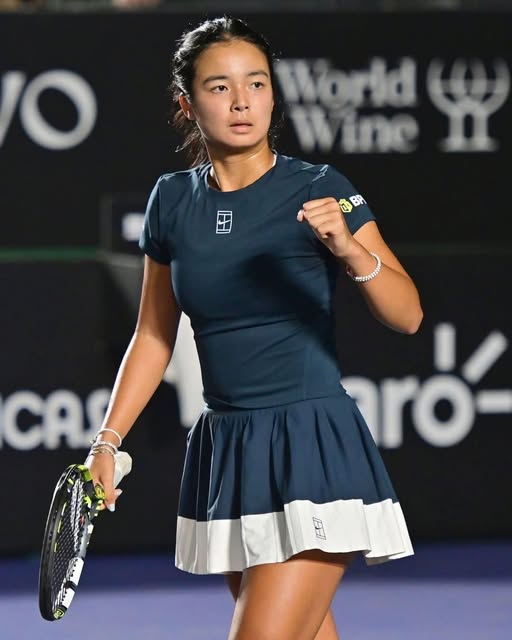Every time Alex Eala steps on the court wearing the Philippine flag on her sleeve, millions of Filipinos feel an instant surge of pride. For a country that doesn’t often dominate the global tennis stage, Alex has become a symbol of hope, potential, and proof that world-class talent can come from the Philippines. Yet, behind all the cheering and admiration lies a debate that keeps resurfacing: is Alex Eala truly a once-in-a-generation icon for Filipino sports, or is she just another tennis player still trying to prove herself on the biggest stages?
This question has divided fans, especially in online communities and Facebook groups. On one side are the believers, those who call her a national treasure, the pride of the Philippines, and the athlete who will finally put the country on the tennis map. They point to her impressive junior titles, her training in Spain, and her steady climb in professional tournaments as proof that she is destined for greatness. For them, Alex represents not just personal success but a breakthrough for an entire nation longing for recognition in the global tennis scene.
On the other side are the skeptics. They argue that while Alex has talent, she still hasn’t proven herself at the highest level. Unlike other global tennis stars who broke into the top rankings at a very young age, Alex’s journey has been more gradual. These critics ask tough questions: has she really done enough to be called the pride of the Philippines, or is the hype running ahead of her achievements? They worry that too much national pressure could hurt her growth as an athlete.
The truth is probably somewhere in the middle. Alex is not yet a household name in world tennis, but she has achieved things no other Filipina has. Winning junior Grand Slam doubles titles, playing with confidence against more experienced opponents, and consistently carrying the Philippine flag in international events is no small feat. For a country with limited tennis infrastructure and fewer opportunities compared to nations like the US or Spain, Alex’s rise is already historic.
But the debate continues because fans don’t just watch athletes for results—they invest emotions, identity, and national pride in them. When Alex wins, it feels like the Philippines wins. When she loses, critics rush to say she is “just another tennis player.” This cycle of praise and doubt creates the drama that keeps her name alive in conversations, whether positive or negative.
What makes Alex stand out is that she doesn’t seem distracted by the noise. She carries herself with maturity, acknowledging the support but also reminding fans that she is still growing, still learning, and still chasing bigger goals. She knows the weight of being called “Filipino pride,” but she also understands that real greatness takes time.
So, is Alex Eala Filipino pride or just another tennis player? The answer may depend on who you ask. To her supporters, she is already a national icon. To her critics, she has more to prove. But one thing is undeniable: Alex Eala has put Filipino tennis on the world’s radar in a way no one else has, and that alone makes her story worth following.
And as long as fans keep debating, cheering, and questioning, one thing is clear—Alex Eala is far from being “just another tennis player.”

